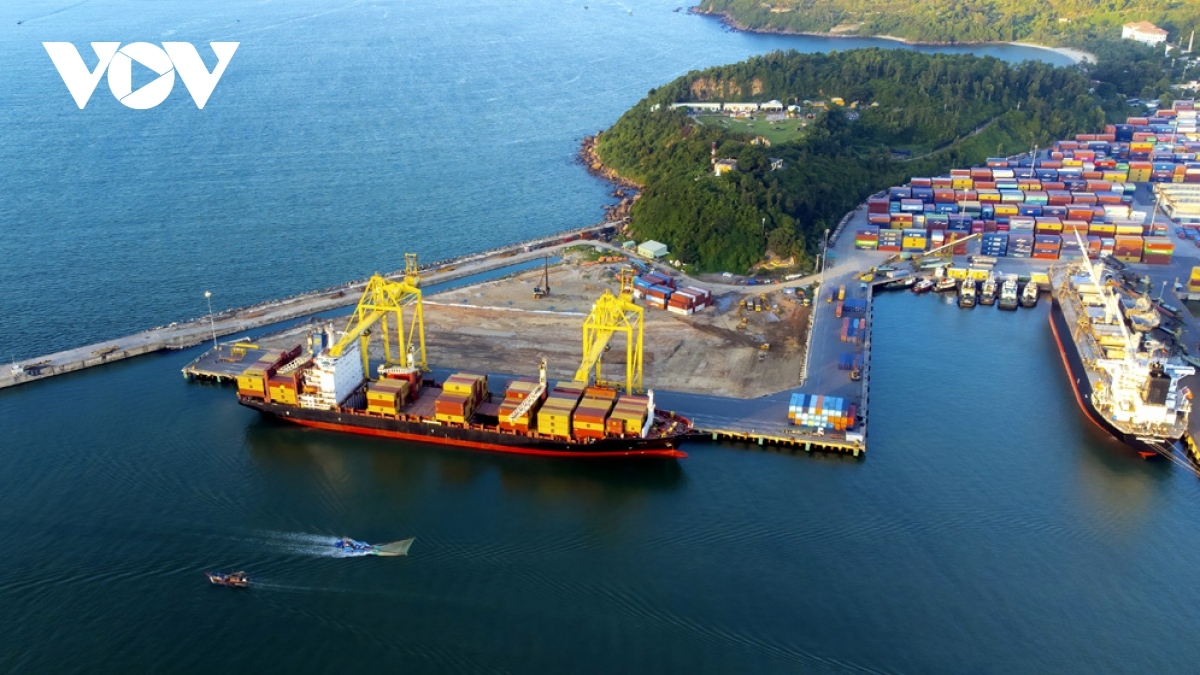How will Vietnam benefit from US recognition of market economy status?
Society – Economy - Ngày đăng : 16:33, 11/05/2024
How will Vietnam benefit from US recognition of market economy status?
The United States is considering recognising Vietnam’s market economy status that will enable the local economy to elevate its role internationally, whilst also removing barriers to trade cooperation and investment attraction.
Higher international status

The United States Department of Commerce heard a testimony on May 8 to consider recognising the country’s market economy status. During the hearing, the Vietnamese side gave data confirming that its economy has completely met the six criteria of market economy regulations according to US law. At the same time, it also emphasised that the Vietnamese economy has developed even more rapidly compared to many other market economies which have been recognised by the US over the past decade.
Currently, the US still considers the country to be among non-market economies in terms of trade defence cases, a move that has a huge impact on Vietnamese businesses, especially in relation to anti-dumping investigations.
The fact is that the Vietnamese market economy has been recognised by 72 countries worldwide, including major economies like the UK, Canada, Australia, Japan, and the Republic of Korea. The country has also engaged in 16 bilateral and multilateral free trade agreements (FTAs) with more than 60 trading partners around the world.
Economic expert Le Quoc Phuong, former official of the Ministry of Industry and Trade, said that the US process of reviewing Vietnamese market economy regulations represents a new step towards further deepening the comprehensive strategic partnership that exists between the two countries. This will therefore greatly change the country’s role and position globally, far different from when it is considered a non-market economy that causes many barriers to trade cooperation as well as investment attraction.
According to the expert, this process can be quite slow and somewhat cautious because the local economy has transitioned from a planned, centralised bureaucratic economy to a market economy. Currently, there are still State directions, interventions, and support given in the market economy.
“This is also an inevitable development process as the Vietnamese economy is growing under increasingly complex external influences. But the role the State plays in the market economy is very necessary, as it helps to lead the market to develop in a positive direction and overcome limitations caused by the market economy,” explained the expert.
New trade opportunities

In fact, after nearly four decades of implementing the open-door policy, the Vietnamese economy is now operating fully and synchronously in line with the rules of the market economy with each stage of the country’s development, as well as the process of international integration. The local economy is therefore being developed with the engagement of various economic sectors, in which the State economic sector plays the leading role and the private economic sector is an important driving force. They join the market on an equal footing basis and by playing by the rules according to the law.
Once the US recognises Vietnam’s market economy status, the country will gain more advantages in resolving trade disputes because non-market economies are susceptible to anti-dumping taxes on exported products.
“Such a recognition of the US will be especially important for Vietnam in the way that it helps the country engage deeper in global value chains, improve labour productivity and avoid the middle income trap,” affirmed Phuong.
However, he noted that even when Vietnam is recognised as a market economy, it is necessary to continue accelerating administrative reform and legal reform to ensure the State serves as a strong force to effectively implement socio-economic development tasks, practise democracy, maintain independence and self-reliance, and firmly integrate into the global economy.
Furthermore, economic expert Assoc. Prof. Dr. Dinh Trong Thinh shared that the recognition is of great significance to Vietnam in relation to strengthening its comprehensive strategic partnership with the US, thereby opening up new opportunities for the country in terms of investment and trade cooperation with many other partners.
In particular, with its huge role and influence, the US’ recognition will serve to create a new perspective relating to Vietnam in the eyes of international organisations, as well as potential partners. As a result, the economy will enjoy greater opportunities as it strives to attract investment and expand import and export markets with many great preferential policies.
“Such a recognition will enable Vietnam to access many new generation free trade agreements, helping the local economy to attract more foreign direct investment and spur economic growth. The country will be given the chance to further diversify economic activities and improve competitiveness towards building a more productive growth model,” analysed Assoc. Prof. Dr. Thinh.
However, the economic expert pointed out that to truly have a market economy that maintains high growth, the Government is required to continue promoting economic restructuring, whilst also transforming labour-intensive, low-value-added industries into high-value-added and high-tech manufacturing industries.
